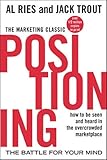What does being employee have to do with creating a Unique Selling Proposition? Plenty. Why? Because, this kind of “conditioning” makes it extremely difficult for us business owners to truly figure out an answer to a very simple question: What Business Am I In?
If you haven’t gotten this figured out, everything else in your business is going to be extremely difficult. Not just your marketing and selling, but also all the other functions of your business.
The idea of “job classification” is a pretty efficient one, of course. Most of us love the idea of not having to think much about what we will do when we grow up. Somebody has already done all the hard thinking for us and made nice little boxes that we can fit into.
The problem is that many business owners, small and large, never grow out of this mentality. And it shows in how they sell, how they market and how they tell others about what they do. It also shows in how they manage their employees, how they buy their products and services, how they run their operations and how they hire and fire employees.
This would be okay if it “worked” in the marketplace. The fact, though, is that it does not.
Studies show that about 90% percent of small businesses fail in first five years. Those who are successful do some original, authentic thinking that make them different, even unique in the marketplace. One indicator of the fact they have done this is that they bring hope, news and excitement to the “same old, same old”, “me-too” marketplace.
Often we think that we already know the answer. If you do, my hats off to you. Chances are pretty high though that you don’t know the answer, even when you think you do. What you may have done is just picked a category from the yellow pages.
In the workshops I conduct, when I ask people, “What Business Are You In?” there are those say that it’s too easy and then go on to describe one of the pre-fitted categories from the yellow pages. And then there are those who have a difficult time coming up with an answer.
It’s funny, typically it’s those who struggle a bit while answering this question that I believe are on the right track to a business success. Why? Simply because they are doing some original, uncomfortable thinking that’s so crucial for business success. It’s easy to go in a pre-set category; it’s hard to carve out your own.
Don’t get me wrong, you do need to put yourself in one or more of these categories for marketing and positioning reasons. But for the sake of our own clarity, we need to go through some thinking of our own and discover what business we are really in.













 Authentic Business: Why Truth is the Best Strategy in Business-Buildingon 05/24/2012
Authentic Business: Why Truth is the Best Strategy in Business-Buildingon 05/24/2012



Comments
Sometimes the hardest questions are the simplest. I believe: "What business am I in?" belongs in this category. But finding the answers on hardest questions are among most satisfying activities of all.
Thanks for thorough insight! Enjoy your journey:)